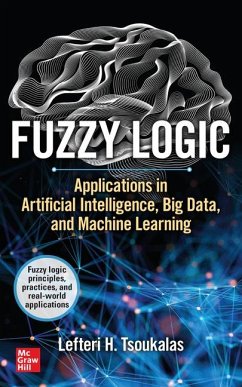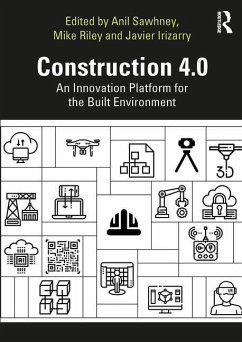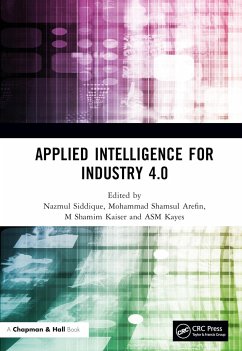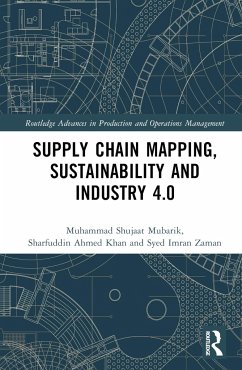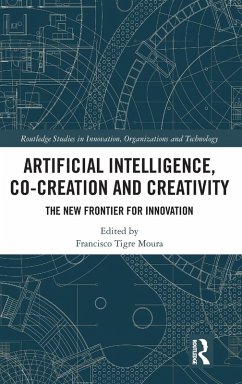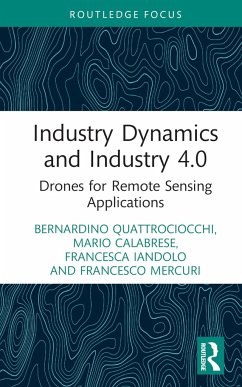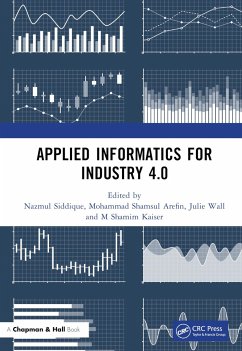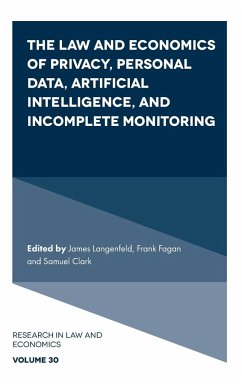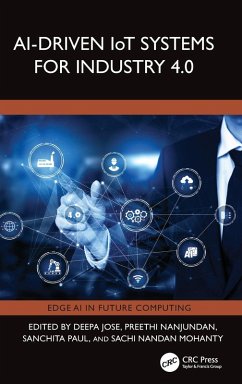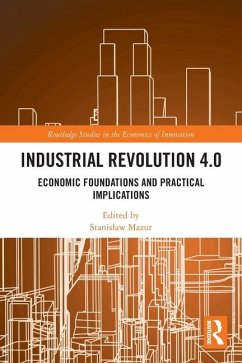
Artificial Intelligence, Big Data, Algorithms and Industry 4.0 in Firms and Clusters
Versandkostenfrei!
Versandfertig in 6-10 Tagen
160,99 €
inkl. MwSt.
Weitere Ausgaben:

PAYBACK Punkte
80 °P sammeln!
This volume offers a wide-ranging discussion on the interrelations among AI, algorithms, big data, and Industry 4.0 to understand the importance of these new paradigms for the development of firms, districts, clusters, cities, regions, and innovation.Drawing on theoretical, empirical, and qualitative studies and using local perspectives, the chapters in this book explore theoretical aspects of AI and its evolution in social sciences, focusing on industry 4.0, smart cities, big data, and other related topics. They examine the role of industrial robots in employment, productivity, and knowledge ...
This volume offers a wide-ranging discussion on the interrelations among AI, algorithms, big data, and Industry 4.0 to understand the importance of these new paradigms for the development of firms, districts, clusters, cities, regions, and innovation.
Drawing on theoretical, empirical, and qualitative studies and using local perspectives, the chapters in this book explore theoretical aspects of AI and its evolution in social sciences, focusing on industry 4.0, smart cities, big data, and other related topics. They examine the role of industrial robots in employment, productivity, and knowledge absorption in industrial districts. They also discuss innovation in the context of local production systems, AI ecosystems, and the growth and potential of the Metaverse. Taken together, the book offers insights to help understand the new dynamics generated by the advent of these technologies and how they may affect regions, cities, clusters, industries, and organizations, and identifies avenues for future research in the development of new trajectories for clusters and firms.
This book will be a key resource for scholars and advanced students in the fields of economics, geography, architecture, planning, and management as well as for interdisciplinary researchers who want to learn more about the development of new technologies, the relevance of AI, Big Data and I4.0 for firms and in relation to their adoption in clusters. This book was originally published as a special issue of European Planning Studies.
Drawing on theoretical, empirical, and qualitative studies and using local perspectives, the chapters in this book explore theoretical aspects of AI and its evolution in social sciences, focusing on industry 4.0, smart cities, big data, and other related topics. They examine the role of industrial robots in employment, productivity, and knowledge absorption in industrial districts. They also discuss innovation in the context of local production systems, AI ecosystems, and the growth and potential of the Metaverse. Taken together, the book offers insights to help understand the new dynamics generated by the advent of these technologies and how they may affect regions, cities, clusters, industries, and organizations, and identifies avenues for future research in the development of new trajectories for clusters and firms.
This book will be a key resource for scholars and advanced students in the fields of economics, geography, architecture, planning, and management as well as for interdisciplinary researchers who want to learn more about the development of new technologies, the relevance of AI, Big Data and I4.0 for firms and in relation to their adoption in clusters. This book was originally published as a special issue of European Planning Studies.





